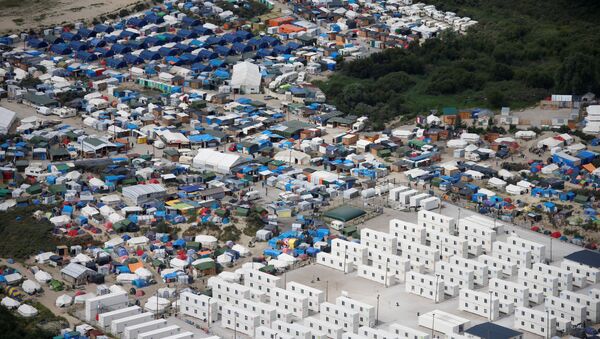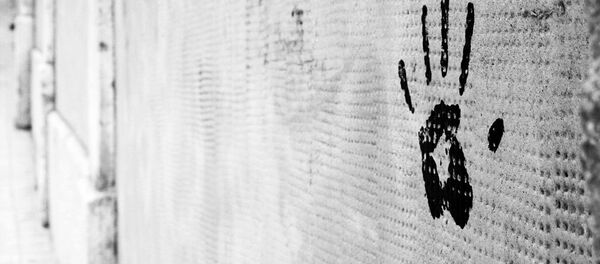A Sputnik correspondent visited residential areas on Gravelines Road, closest to the "Jungle" and the circular road leading to the port and to the A16 motorway leading to the Eurotunnel. One of the residents who works as a fireman, Dominique, suspects that migrants make regular night-time visits to his neighbor's land with a greenhouse, if one judges by the state of the hedge.
"If you walk along Gravelines Road, you'll see that most residents are building higher outer walls to fence themselves from the others. In fact, many migrants walk around here. It restrains us and makes us scared for our children and grandchildren. You never know what can happen…"
"When we moved here twelve or fifteen years ago, we felt safe. And now you can't walk outside in the evening anymore. I used to walk the dog behind the house — there was a passage. And now you just can't get out even with the dog: it is dirty and unsanitary everywhere and you never feel safe. Some migrants are good people, but there are also bad ones, we should not forget about it."
"So, in the evening, we always check if everything is tightly locked and switch on an alarm system," she added.
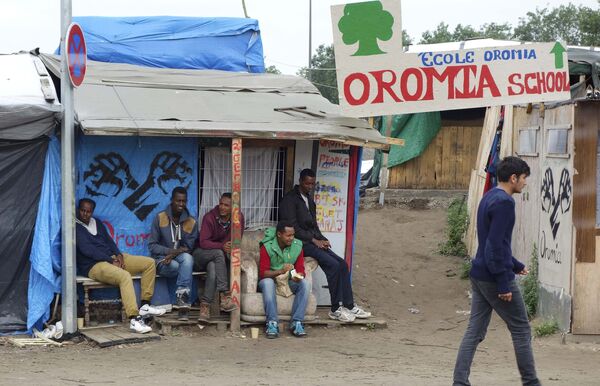
Franck, who lives in this area and works as a docker at the Calais port, has the same opinion. He feels the influence of the "Jungle" both at home and at work:
"It is like a public thoroughfare here, every night something happens, every night we hear the police siren. It is real urban warfare! Our neighbor's son was once attacked on the road: they threw a piece of wood at him, the boy nearly died."
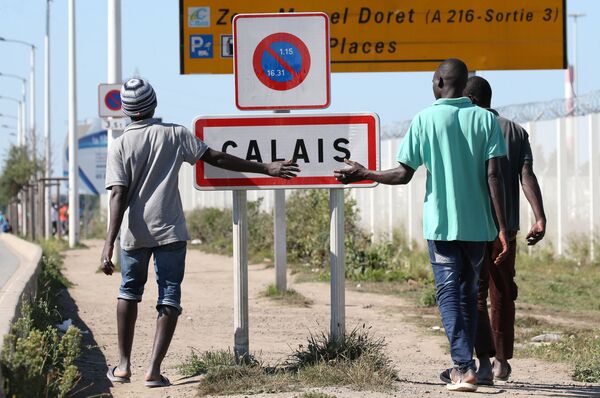
If Franck is not afraid for himself — after all he's a docker — he is worried about his family:
"I have three daughters. They used to catch a bus on Gravelines Road. Now they can't do that. They are groped and molested, when they are getting on it. Recently my daughter was forced to run and wait out in a bakery, because migrants surrounded her when she got off the bus."
Marie lives in a house at the intersection of Gravelines Road and Mouettes Street, where you can often meet migrants from "The Jungle", who want to cross the bridge over the circular road of the port. All her neighbors know that she sleeps with one eye open:
"Some neighbors keep animals: rabbits, goats, chickens — they are often stolen. Every day, people constantly feel fear at the subconscious level. At night, when you hear the noise, you look out the window. Once they threatened us that they would cut our throats because we looked at them."
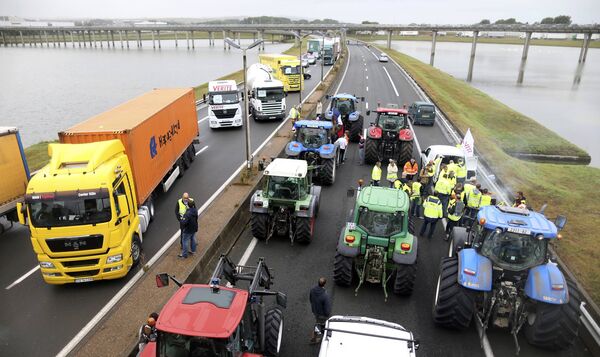
Freddy lives a little further away and works at the hypermarket in Calais, located on the border with Coquelles, not far from the Eurotunnel Terminal and the A16 motorway:
Farmer Olivier Butez lives near Fort Vert, a commune bordering Calais, and has also suffered hardships since the refugee camp was set up:
"The first to suffer are our crops. I had about half a hectare of flax — they torn it out and threw it away in a brook and onto the motorway. Then they went to the fields with potatoes, which they dug to eat or just for fun."
"We are afraid, especially for our children. I have young kids who can no longer walk freely on the territory or nearby, because there are hundreds of migrants there," Olivier said.

The farmer also relayed another serious incident:
"About two weeks ago, at six o'clock in the morning, my brother and I were working with cattle and heard a noise. There was a man covered in blood with a large wound on his forehead — he'd been hit with an axe. Fifty meters further we found a dead body and two more wounded people. This has never happened before. The situation is deteriorating."

